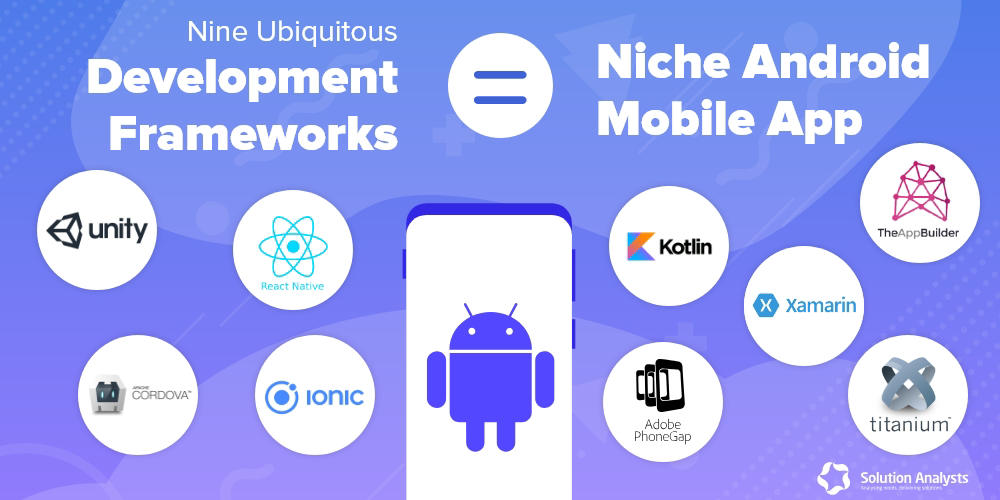Frameworks used in Android Application Development
Frameworks used in Android Application DevelopmentFrameworks used in Android Application Development
Introduction:-
Android is an open-source operating system used in smartphones and other mobile devices. Android Application Development is a process of creating mobile applications for Android devices. Developing Android apps involves several steps, including designing, coding, testing, and deploying the app. Android app development frameworks provide developers with a set of tools, libraries, and services to simplify the app development process and improve app performance.
In this article, we will discuss some of the popular Android app development frameworks used in the industry.
Android Studio:
Android Studio is the official integrated development environment (IDE) for Android app development. It provides developers with a comprehensive set of tools, including a code editor, a visual layout editor, debugging tools, and an emulator for testing apps. Android Studio supports Java and Kotlin programming languages and provides access to the Android SDK and Google Play services.
Android Studio is the most popular choice for Android app development due to its comprehensive features, excellent support, and integration with the Android ecosystem.
React Native:
React Native is an open-source framework used for building cross-platform mobile applications. It is developed by Facebook and allows developers to use the same codebase for developing both Android and iOS apps. React Native is based on the React.js library used for building web applications.
React Native provides a set of pre-built components that can be used to create a native look and feel for the app. It also allows developers to use third-party libraries and plugins to extend the functionality of the app. React Native uses JavaScript and provides a live-reload feature that allows developers to see the changes in the app in real-time.
React Native is a popular choice for developing cross-platform mobile applications due to its excellent performance, ease of use, and flexibility.
Flutter:
Flutter is an open-source framework developed by Google for building cross-platform mobile applications. Flutter uses the Dart programming language and provides a set of pre-built widgets and components for creating native-looking apps. Flutter also allows developers to use third-party libraries and plugins to extend the functionality of the app.
Flutter provides a hot-reload feature that allows developers to see the changes in the app in real-time. Flutter also has a fast development cycle due to its excellent documentation and easy-to-use development tools.
Flutter is a popular choice for developing cross-platform mobile applications due to its excellent performance, ease of use, and flexibility.
Xamarin:
Xamarin is a cross-platform app development framework developed by Microsoft. It allows developers to use C# programming language to develop Android, iOS, and Windows apps. Xamarin provides access to the native APIs of the platform, which allows developers to create native-looking apps.
Xamarin also provides a set of pre-built components that can be used to create native-looking apps. It also allows developers to use third-party libraries and plugins to extend the functionality of the app. Xamarin provides excellent support for Visual Studio, which is the most popular IDE used by developers.
Xamarin is a popular choice for developing cross-platform mobile applications due to its excellent performance, ease of use, and flexibility.
Ionic:
Ionic is an open-source framework used for developing hybrid mobile applications. It allows developers to use web technologies such as HTML, CSS, and JavaScript to create mobile applications that can be deployed on Android and iOS platforms.
Ionic provides a set of pre-built components and templates that can be used to create native-looking apps. It also allows developers to use third-party libraries and plugins to extend the functionality of the app. Ionic also provides excellent support for Cordova, which is a popular platform for developing hybrid mobile applications.
Ionic is a popular choice for developing hybrid mobile applications due to its excellent performance, ease of use, and flexibility.
Conclusion:
In conclusion, there are several popular Android app development frameworks available for developers. Each framework has its own set of advantages and disadvantages. Android Studio is


टिप्पणियाँ
एक टिप्पणी भेजें